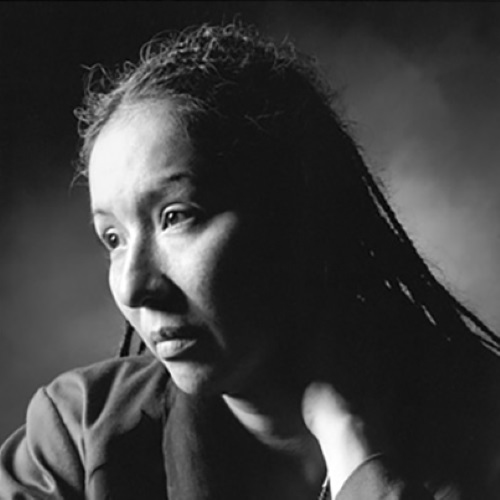Ingrid Washinawatok El-Issa
Celebrating Wisconsin Visionaries, Changemakers, and Storytellers
International Human Rights Advocate for Indigenous Peoples
Changemaker | Ingrid Washinawatok El-Issa Menominee | 1957 - 1999
Ingrid Washinawatok El-Issa, a member of the Menominee Nation, is a celebrated human rights advocate and a changemaker who dedicated her life to fight for rights of Indigenous peoples throughout the world. Born in 1957, her efforts to help her community and other Native peoples started from a young age and eventually led her to have a global impact, including work that would later influence the 2007 United Nations Declaration on the Rights of Indigenous Peoples (UNDRIP).
Washinawatok was born and grew up during Indian termination, the official federal Indian policy of the U.S. government at the time. Ending in 1970, the termination era is marked by its harmful and lasting effects on Native people. The policy disintegrated necessary infrastructure in tribal communities, including the Menominee’s, plunging them into poverty. Through termination, the federal government sought to liquidate Indian nations and effectively end the government’s trust obligation to Indian people as trustees, rights that were secured for citizens of tribal nations through treaties between sovereign governments. Termination, later proving to be a detriment to the U.S. as well, aimed at targeting tribes with considerable economic success first, like the Menominee, who had experienced success in the lumber industry—considered traditional environmentalists and world renowned for sustainable forestry practices.
When she was in high school, Washinawatok became involved with Menominee’s restoration efforts, organizing among other tribal nations and groups to call on Congress to repeal termination and reinstate federal recognition for nations affected by the policy. In 1973, the Menominee Nation succeeded in having the status restored. Washinawatok continued her advocacy work that began in her teens and furthered her education by attending college at the University of Wisconsin, followed by the University of Havana, Cuba. She later chaired the NGO Committee on the United Nations International Decade of the World's Indigenous Peoples. In 1980, she helped found the Indigenous Women’s Network.
Washinawatok was involved with numerous organizations working for Indian rights in her lifetime and lectured on the topic across the world. In 1999, she and two colleagues were kidnapped and later killed while working to help the U’wa tribe in the highlands of Columbia set up a school system to protect its people and land from encroaching oil companies and guerillas. Washinawatok received full warrior honors at her funeral from the Menominee Nation. Today, her life and international contributions are celebrated for being a key changemaker, impacting Indigenous communities through improved outlooks.
Sources: 12 Wisconsin Women Often Overlooked by History | Wisconsin State Journal article, Ingrid Washinawatok (1957-1999)

